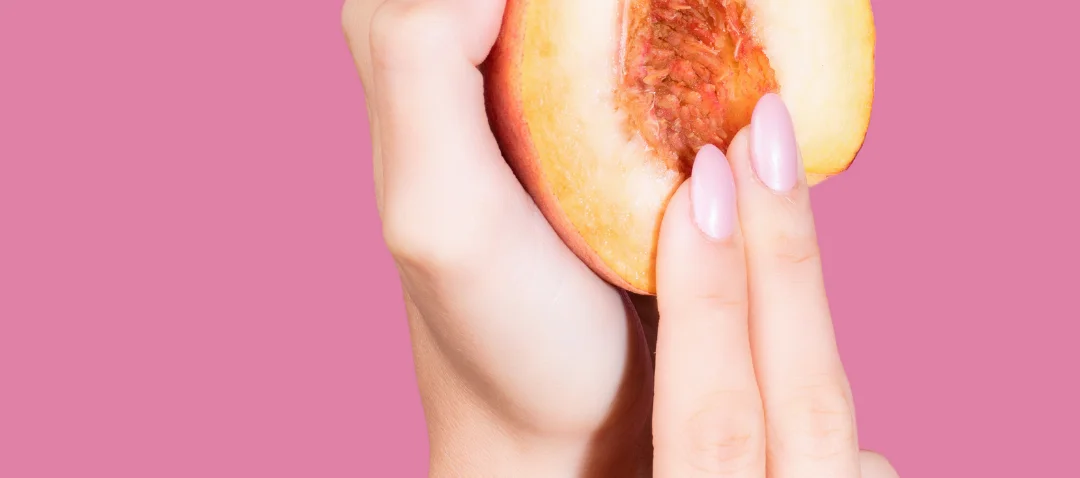
What is Vulval Lichen Sclerosus?
Vulval lichen sclerosus (LS) is an inflammatory condition that affects the skin of the vulva. It’s most common in postmenopausal women but can occur at any age.
Vulval LS does not affect the vagina or cause any discharge, but it can affect the skin of the vulva in the following ways:
- Itching and soreness, which may get worse at night
- The skin may change colour and become pale, white or silvery
- Small areas of bruising may appear, which look like blood blisters
- The skin may become fragile, and could split or tear
- Over time, the skin of the vulva may scar and shrink. This can cause the vaginal opening to narrow, which may make sex or other vaginal penetration uncomfortable.
Not everyone will experience all of these symptoms, and vulval LS can go into remission, which means that symptoms may not be present all the time.
These symptoms can sometimes be confused with thrush or vaginal atrophy, so it’s important to speak to your GP if symptoms persist, rather than relying on over-the-counter treatments.
What causes vulval LS?
Vulval LS is not sexually transmitted and it is not infectious. Although it’s more common around the menopause, it is not thought to be related to changing hormone levels or caused by an allergic reaction.
LS is thought to be autoimmune in nature; a condition where the body attacks itself. There may be a link to other autoimmune illnesses, such as thyroid problems, or pernicious anaemia, but it is not as simple as one disease causing the other.
Getting a diagnosis
In order to make a diagnosis, your GP will need to examine you, and may then refer you to a gynaecologist or a dermatologist. Usually, the diagnosis is made by taking a medical history and examining the vulva. Rarely, a biopsy (a small piece of skin that can be analysed under the microscope) is required to make the diagnosis but if this is needed, it will be done using local anaesthetic.
Treatments for vulval LS
There is no cure for LS so treatment focuses on symptom control by reducing local inflammation. The main treatment is a strong steroid ointment which is applied to the affected area. This can sometimes cause burning or stinging when you first apply it, but this usually settles within a week or two and should not stop you using it.
Often, topical steroids are initially used daily but this can usually be reduced once the condition is well controlled. You should not worry about using topical steroids with LS; they are very safe to use with this condition and will not cause thinning of the skin.
The use of emollients or moisturisers to soften and protect the skin are also used as a treatment.
Vaginal estrogen can help relieve these symptoms as low estrogen levels affecting the genital skin can co-exist with LS. Vaginal estrogen can be prescribed as a cream, pessary or flexible ring that sits inside the vagina.
Surgery is rarely used to treat vulval LS, unless scarring has caused problems such as a narrowed vaginal opening, which is impacting on your sex life, for example.
Living with vulval LS
Vulval LS can’t be cured, but it can be controlled. You will usually have regular follow-up appointments until your symptoms are well managed.
The following tips may help you manage pain and discomfort during a flare up:
- Use an emulsifying ointment or moisturiser, like Dermol 500, instead of soap
- You can also use these creams as a barrier before using the toilet, to reduce stinging and irritation
- Try and avoid potential irritants like soap, bubble bath, talcum powder, feminine wipes, panty liners, perfumed products or tight trousers
- Use a peri bottle (a simple bottle for washing the perineal area) filled with warm water when passing urine. Spraying warm water around the vulva will dilute the urine and reduce stinging and burning
- Creams like Lanacane and Balneum Plus cream can help relieve itching and irritation.
Regular self-examination is very important. If you notice a change in your symptoms or appearance, particularly any ulcers or lumps, it’s important to talk to your doctor about this. A small number of women who have vulval LS may develop vulval cancer, but this is very rare when symptoms are well controlled.